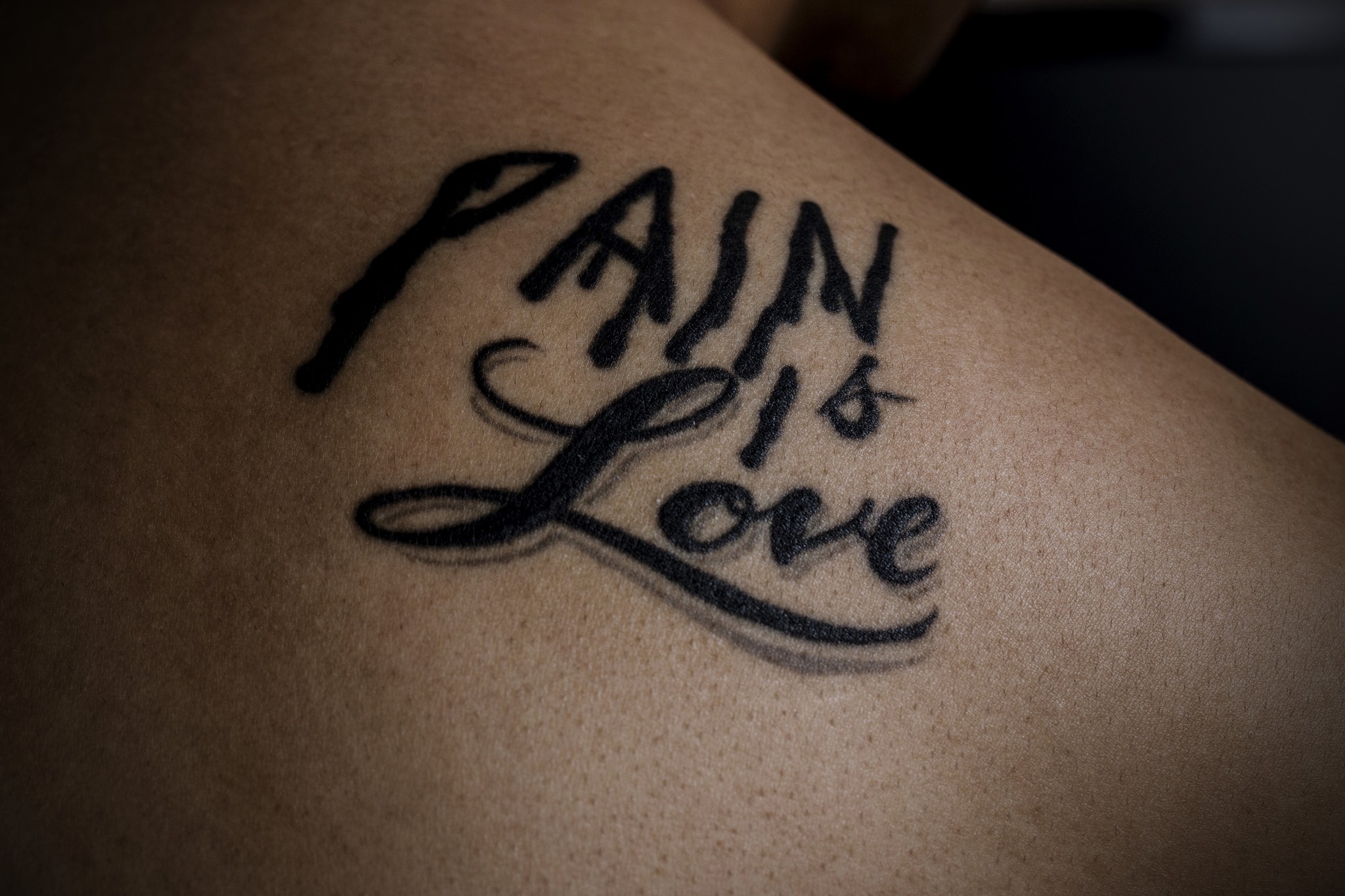“Better to die fighting for freedom then be a prisoner all the days of your life.” ― Bob Marley
I entered the Tattoo shop without knowing exactly why, and I left with a huge tattoo on my right shoulder. It took the tattooist only a few minutes to extricate out of me, the hidden message that lay in my unconscious mind.
And after three hours of heavy metal music bombarding my being, and the tattooist working his magic, I came out with an image of a winged angel holding a banner that said: “Born to be free.”
My soul was screaming for attention and recognition. It had managed to escape the prison that was my ego, long enough to conceive the idea of the tattoo.These four words marked on my body for life would inadvertently kick-start the spiritual journey my soul had so yearned for.
I wanted to be born again. I wanted to free myself from all the old beliefs that were holding me back. I wanted a better life, one where I was totally free.
As I pursued more freedom in my life, I found that the four freedoms below were the most important ones to start with:
A) Freedom of negative thoughts and limiting beliefs
“A person is limited only by the thoughts that he chooses.” ― James Allen, As a Man Thinketh
The life of a thought starts when a single thought keeps buzzing away in our minds like an annoying fly trying to get noticed. This thought grows into more thoughts, consuming our minds and devouring all our time and energy.Then this collection of thoughts that we are now living and breathing grow into a belief, that then becomes set in stone and so difficult to reverse.
We have almost 60,000 thoughts a day, and most of them should be dumped in a trashcan. We are not our thoughts or our thinking. We need to view thoughts as coming at us on a conveyor belt, where we pick and choose the thought that serves us best.
The people who are content and living full lives have put their focus on the positive thoughts that empower them, freeing themselves from the adverse effects of focusing on the many different negative thoughts that arise.
B) Freedom of to be ourselves rather than to keep up with Society
“To be nobody but yourself in a world which is doing its best, night and day, to make you everybody else means to fight the hardest battle which any human being can fight; and never stop fighting.”-E.E. Cummings
We need to ask ourselves what matters most to us in any given decision. In Steven Covey’s words, let’s always “begin with the end in mind” in any situation using fulfillment, and meaning as the goal rather than achievement.
Do we need to go to that social function? Do we need to buy the Armani suit? Why do we agree to fulfill certain traditions, even though we don’t care much for them?
If the situation adds value to our lives, then it’s right to go for it but if our decision is based on a fear of missing out, then we are making a wrong decision.
Many of us live like sheep, not because we are happy, but to avoid disrupting the status quo of our lives. We fight day and night to stay in our comfort zones. We crave the sense of belonging that society gives us.
Unfortunately when we succumb to this innate fear we have, we start living other people’s lives, and we follow the principles that don’t matter to us.
C) Freedom of attachment to results
“Let not the fruit of action be your motive to action. Your Business is with action alone, not with the fruit of action.”- The Bhagavad Gita
When we free ourselves from attachment to results, then we magically enjoy the process much more and paradoxically our results improve. When we free ourselves from the comparison that attachment to results inadvertently brings us then, we become more content and satisfied with our lives.
And when we set an intention that we are committed to a certain action rather than its results, we free ourselves from the doubts, fears, and anxiety that results instill in us.
Also, when set an intention not to attach to outcomes, we become open-minded and so much more ready to embrace new ideas.
D) Financial Freedom
To be financially free doesn’t necessarily mean to make millions, own many properties, become famous, or own a huge business employing thousands of people. It could be so, and there are many, who embody that image, but not all of them are as free as we think.
Are they free of the power that money has over them? Are they living free of the desires that money brings with it?
For me, to be financially free means, to be able to spend less than you earn and save something for a rainy day. It means that we don’t have that inner need to make more so that we can spend more.
It means reducing the desire and greed that consumerism has instilled in our DNA. It means not buying a new car when you have many; it means not owning a property that you are not using. It means not having a wardrobe that is full of clothes that you don’t wear.
Why do we continually put ourselves under pressure for fleeting moments of happiness that the Chanel bags or the Porsche car provides us with? Won’t we be happier and more content without the bag or car and the inevitable bill that is waiting to be paid?
I’m not promoting communism or socialism, and I’m all for buying beautiful things but only if we use them, and they become a constant source of contentment in our lives.
For example, I Built a pool in my house at a huge cost, but looking back after three years of use, I would say it’s been the best money I’ve spent for a while. It’s been the source of an immeasurable amount of contentment and joy to me.
Freeing our souls, allows us to follow our hearts in a world that is so dominated by our minds. It allows us to accept our life and appreciate the good things we already have in our life.



 Published By
Published By 




